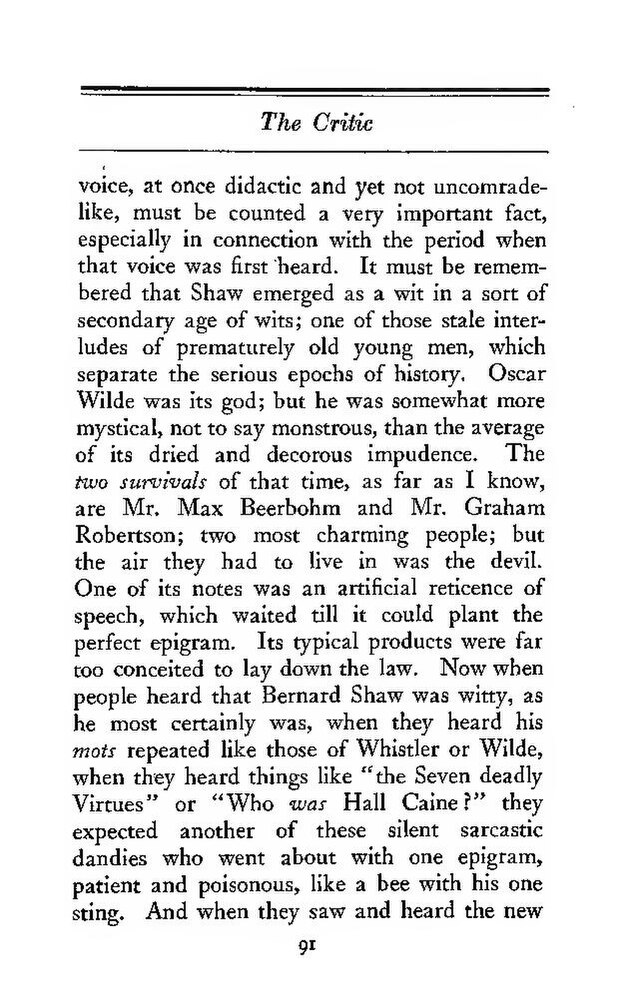voice, at once didactic and yet not uncomradelike, must be counted a very important fact, especially in connection with the period when that voice was first heard. It must be remembered that Shaw emerged as a wit in a sort of secondary age of wits; one of those stale interludes of prematurely old young men, which separate the serious epochs of history. Oscar Wilde was its god; but he was somewhat more mystical, not to say monstrous, than the average of its dried and decorous impudence. The two survivals of that time, as far as I know, are Mr. Max Beerbohm and Mr. Graham Robertson; two most charming people; but the air they had to live in was the devil. One of its notes was an artificial reticence of speech, which waited till it could plant the perfect epigram. Its typical products were far too conceited to lay down the law. Now when people heard that Bernard Shaw was witty, as he most certainly was, when they heard his mots repeated like those of Whistler or Wilde, when they heard things like "the Seven deadly Virtues" or "Who was Hall Caine?" they expected another of these silent sarcastic dandies who went about with one epigram, patient and poisonous, like a bee with his one sting. And when they saw and heard the new
91
